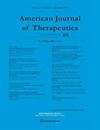在医学中使用人工智能的伦理困境。
IF 2.9
4区 医学
Q2 PHARMACOLOGY & PHARMACY
引用次数: 0
摘要
背景人工智能(AI)被认为是第四次工业革命,将在技术上和关系上改变人类的进化。虽然这个词从 1956 年就出现了,但直到最近,人们才发现人工智能可以彻底改变技术,并在医学领域有许多应用。不确定领域人工智能在医学中的应用所带来的伦理困境围绕着与知情同意、尊重保密性、保护个人数据有关的问题,最后但并非最不重要的是它所使用信息的准确性:人工智能、医学的未来、机器学习加伦理困境。伦理与治疗学发展对人工智能用于医学所引发问题的伦理分析必须主要解决非 "善 "与 "善 "的问题,两者都与患者安全风险、从不足甚至不正确的信息中检测出正确信息的能力与能力相关。开发能够支持医疗实践的人工智能工具可以增加人们获取医疗信息的途径,例如获得第二意见,但这也引起了医疗专业人士,特别是生命伦理学者对如何保密以及如何维护网络安全的担忧。另一个主要风险可能与医疗行为的非人性化有关,因为至少目前,只有人类才能获得同理心和同情心。人工智能尚未克服某些限制,缺乏道德主观性、同理心、批判性思维水平仍然不足,但无论谁将在下一阶段从事预防或治疗医学,他们都无法忽视人工智能,因为在人类的控制下,人工智能可以成为医疗实践中的重要工具。本文章由计算机程序翻译,如有差异,请以英文原文为准。
Ethical Dilemmas of Using Artificial Intelligence in Medicine.
BACKGROUND
Artificial intelligence (AI) is considered the fourth industrial revolution that will change the evolution of humanity technically and relationally. Although the term has been around since 1956, it has only recently become apparent that AI can revolutionize technologies and has many applications in the medical field.
AREAS OF UNCERTAINTY
The ethical dilemmas posed by the use of AI in medicine revolve around issues related to informed consent, respect for confidentiality, protection of personal data, and last but not least the accuracy of the information it uses.
DATA SOURCES
A literature search was conducted through PubMed, MEDLINE, Plus, Scopus, and Web of Science (2015-2022) using combinations of keywords, including: AI, future in medicine, and machine learning plus ethical dilemma.
ETHICS AND THERAPEUTIC ADVANCES
The ethical analysis of the issues raised by AI used in medicine must mainly address nonmaleficence and beneficence, both in correlation with patient safety risks, ability versus inability to detect correct information from inadequate or even incorrect information. The development of AI tools that can support medical practice can increase people's access to medical information, to obtain a second opinion, for example, but it is also a source of concern among health care professionals and especially bioethicists about how confidentiality is maintained and how to maintain cybersecurity. Another major risk may be related to the dehumanization of the medical act, given that, at least for now, empathy and compassion are accessible only to human beings.
CONCLUSIONS
AI has not yet managed to overcome certain limits, lacking moral subjectivity, empathy, the level of critical thinking is still insufficient, but no matter who will practice preventive or curative medicine in the next period, they will not be able to ignore AI, which under human control can be an important tool in medical practice.
求助全文
通过发布文献求助,成功后即可免费获取论文全文。
去求助
来源期刊

American journal of therapeutics
PHARMACOLOGY & PHARMACY-
CiteScore
5.50
自引率
9.50%
发文量
142
审稿时长
6-12 weeks
期刊介绍:
American Journal of Therapeutics is an indispensable resource for all prescribing physicians who want to access pharmacological developments in cardiology, infectious disease, oncology, anesthesiology, nephrology, toxicology, and psychotropics without having to sift through stacks of medical journals. The journal features original articles on the latest therapeutic approaches as well as critical articles on the drug approval process and therapeutic reviews covering pharmacokinetics, regulatory affairs, pediatric clinical pharmacology, hypertension, metabolism, and drug delivery systems.
 求助内容:
求助内容: 应助结果提醒方式:
应助结果提醒方式:


